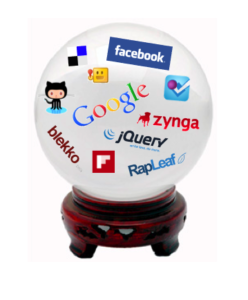 This is another prediction involving technology and using the online web. We found this story really interesting and decided to re-post it here with full attribution to the author. We are unsure as to how far this concept will go, since it has been the traditional garb of the James Bond types. Google is working on glasses that let you browse the web and do your email. You never know what will turn up in the future. Hope you enjoy this article as much as we did.
This is another prediction involving technology and using the online web. We found this story really interesting and decided to re-post it here with full attribution to the author. We are unsure as to how far this concept will go, since it has been the traditional garb of the James Bond types. Google is working on glasses that let you browse the web and do your email. You never know what will turn up in the future. Hope you enjoy this article as much as we did.
Fashion: ‘Technology creates smarter clothes’
Fashion is such an important part of the way in which we communicate our identity to others, For a very long time it’s meant dress: the textile garments on our body. But in the coming decades, I think there will be much more emphasis on other manifestations of fashion. Also different ways of communicating with each other, different ways of creating a sense of belonging and of making us feel great about ourselves.
We’re already designing our identities online – manipulating imagery to tell a story about ourselves. Instead of meeting in the street or in a bar and having a conversation and looking at what each other is wearing. We’re communicating in some depth through these new channels. With clothing, I think it’s possible that we’ll see a polarization between items that are very practical and those that are very much about display – and maybe these are not things that you own but that you borrow or share.
Technology is already being used to create clothing that fits better and is smarter; it is able to transmit a degree of information back to you. This is partly driven by customer demand. The desire to know where clothing comes from. So we’ll see tags on garments that tell you where every part of it was made. Some of this, I suspect, will be legislation-driven, too, for similar reasons. Particularly as resources become scarcer and it becomes increasingly important to recognize water and carbon footprints.
Fashion Changes
However, it’s not simply an issue of functionality. Fashion’s gone through a big cycle in the last 25 years – from being something that was treasured and cherished to being something that felt disposable, because of a drop in prices. In fact, we’ve completely changed our relationship towards clothes and there’s a real feeling among designers who I work with that they’re trying to work back into their designs an element of emotional content.
I think there’s definitely a place for technology in creating a dialogue with you through your clothes
Dilys Williams, designer and the director for sustainable fashion at the London College of Fashion
End of original article
Even today consumers are customizing their smart phones and their iPads etc. They make them fit into their clothing styles and make fashion statements. There are all kinds of covers for iPhones. For example that come in a variety of practical colors and shapes with and with out covers and protection for screens. This is just the beginning of what we as writers believes will be a significant change in technology and how we use it in the future.
For more predictions, click here.
